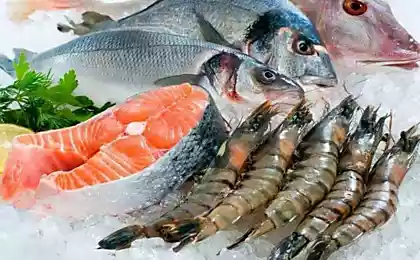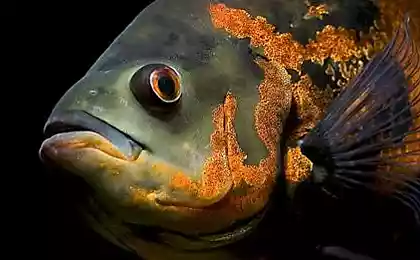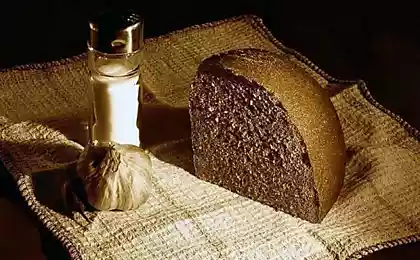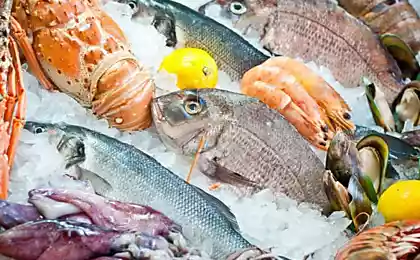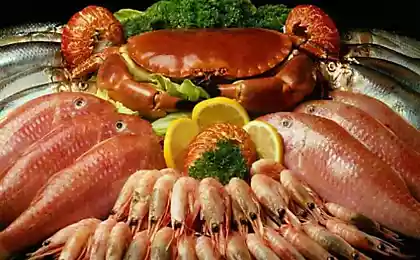606
The most popular Korean fermented fish smells like a public toilet
And taste is not luchshe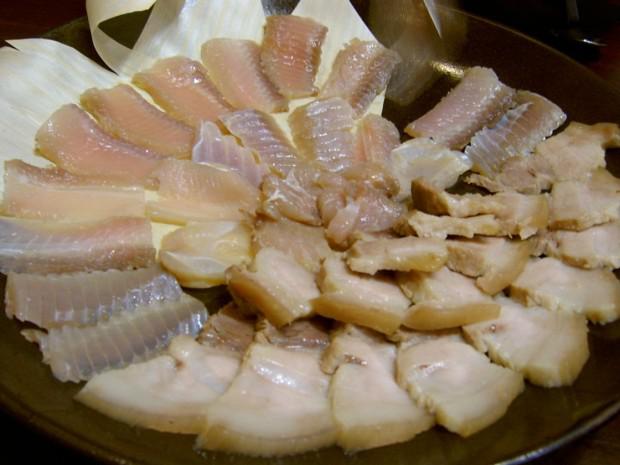
Fermented foods are known for their "tempting" smell and taste, but the South Korean dish hongeo should simply be the worst of all. It certainly is classified as one of the worst food in the world, even for the gourmet-daredevils who like to try strange food.
What makes hongeo so bad? Well, for starters, it is made from meat ramp, but the ramp is not the bladder and kidneys. His digestive waste is simply oozing through the skin in the form of uric acid.
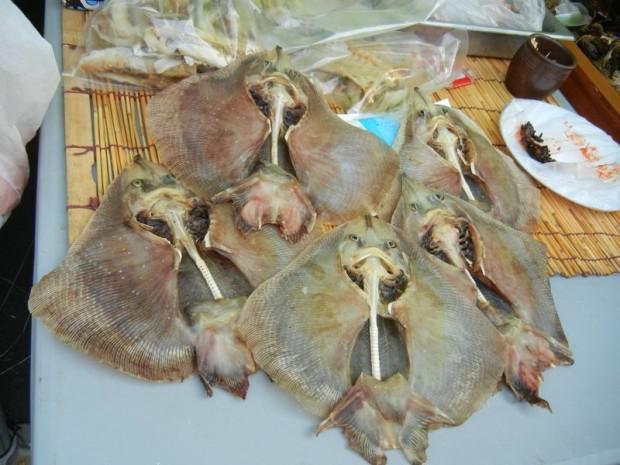
Koreans dig in plenty of fresh rays crossed each other. Then they wait, sometimes for months, until the fish acquire a special "flavor", reminiscent of the smell of public toilets. When the smell gets worse rays already removed, cut into pieces and served raw.
When the flesh starts to wander slope, uric acid is converted into ammonia. And if you've ever had to deal with ammonia, you know that it causes vomiting stench - not what you want to feel in my mouth. The smell does not leave you for a few hours after you have tried the dish remains on your clothes, skin and hair, and the people around you have any serious questions.
But for the experienced consumers hongeo stinking shiny dark pink pieces of fish - a real pleasure. "Some people start to crave hongeo once feel the smell of ammonia - said Shin Ji-woo, who works at the store seafood in Mokpo. - There is no need to say how strong odor. Everyone already knows ».
Taste hongeo as bad as the smell. It is extremely difficult to chew because of the porous meat and cartilage, and hard to swallow. Joe McPherson, who writes for a blog on Korean food ZenKimchi, says:

Fermented foods are known for their "tempting" smell and taste, but the South Korean dish hongeo should simply be the worst of all. It certainly is classified as one of the worst food in the world, even for the gourmet-daredevils who like to try strange food.
What makes hongeo so bad? Well, for starters, it is made from meat ramp, but the ramp is not the bladder and kidneys. His digestive waste is simply oozing through the skin in the form of uric acid.

Koreans dig in plenty of fresh rays crossed each other. Then they wait, sometimes for months, until the fish acquire a special "flavor", reminiscent of the smell of public toilets. When the smell gets worse rays already removed, cut into pieces and served raw.
When the flesh starts to wander slope, uric acid is converted into ammonia. And if you've ever had to deal with ammonia, you know that it causes vomiting stench - not what you want to feel in my mouth. The smell does not leave you for a few hours after you have tried the dish remains on your clothes, skin and hair, and the people around you have any serious questions.
But for the experienced consumers hongeo stinking shiny dark pink pieces of fish - a real pleasure. "Some people start to crave hongeo once feel the smell of ammonia - said Shin Ji-woo, who works at the store seafood in Mokpo. - There is no need to say how strong odor. Everyone already knows ».
Taste hongeo as bad as the smell. It is extremely difficult to chew because of the porous meat and cartilage, and hard to swallow. Joe McPherson, who writes for a blog on Korean food ZenKimchi, says:
«It is a strong slap in the face. Like everyone else, the first time I choked. Even if we take the strongest smells of the world, they will not block it ».
blockquote> via factroom.ru
American teachers put students "offsets" for retweets
Old people commit suicide in China, to ensure that they are buried, not cremated
